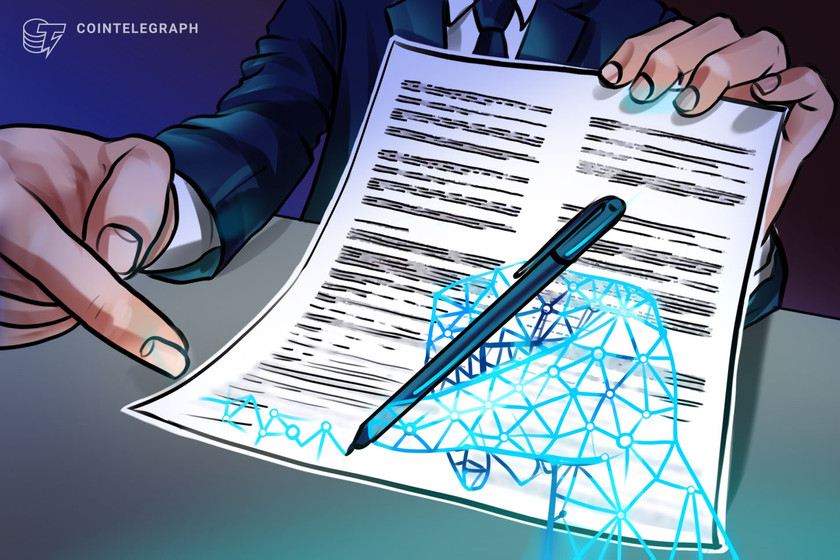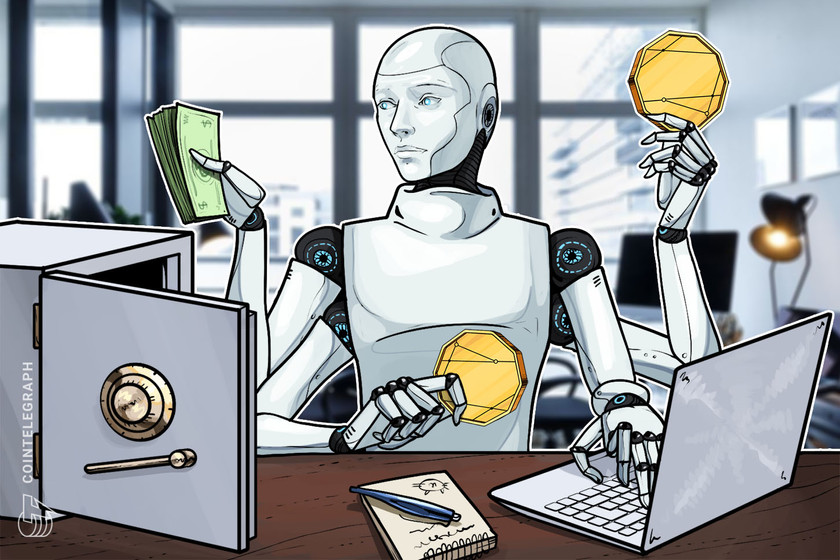Elon Musk and tech execs call for pause on AI development


The authors of the letter say that advanced artificial intelligence could cause a profound change in the history of life on Earth, for better or worse.
More than 2,600 tech leaders and researchers have signed an open letter urging a temporary pause on further artificial intelligence (AI) development, fearing “profound risks to society and humanity.”
Tesla CEO Elon Musk, Apple co-founder Steve Wozniak, and a host of AI CEOs, CTOs and researchers were among the signatories of the letter, which was published by the United States think tank Future of Life Institute (FOLI) on March 22.
The institute called on all AI companies to “immediately pause” training AI systems that are more powerful than GPT-4 for at least six months, sharing concerns that “human-competitive intelligence can pose profound risks to society and humanity,” among other things.
We’re calling on AI labs to temporarily pause training powerful models!
Join FLI’s call alongside Yoshua Bengio, @stevewoz, @harari_yuval, @elonmusk, @GaryMarcus & over a 1000 others who’ve signed: https://t.co/3rJBjDXapc
A short on why we’re calling for this – (1/8)
— Future of Life Institute (@FLIxrisk) March 29, 2023
“Advanced AI could represent a profound change in the history of life on Earth, and should be planned for and managed with commensurate care and resources. Unfortunately, this level of planning and management is not happening,” the institute wrote.
GPT-4 is the latest iteration of OpenAI’s artificial intelligence-powered chatbot, which was released on March 14. To date, it has passed some of the most rigorous U.S. high school and law exams within the 90th percentile. It is understood to be 10 times more advanced than the original version of ChatGPT.
There is an “out-of-control race” between AI firms to develop more powerful AI, whi“no one — not even their creators — can understand, predict, or reliably control,” FOLI claimed.
BREAKING: A petition is circulating to PAUSE all major AI developments.
e.g. No more ChatGPT upgrades & many others.
Signed by Elon Musk, Steve Wozniak, Stability AI CEO & 1000s of other tech leaders.
Here’s the breakdown: pic.twitter.com/jR4Z3sNdDw
— Lorenzo Green 〰️ (@mrgreen) March 29, 2023
Among the top concerns were whether machines could flood information channels, potentially with “propaganda and untruth” and whether machines will “automate away” all employment opportunities.
FOLI took these concerns one step further, suggesting that the entrepreneurial efforts of these AI companies may lead to an existential threat:
“Should we develop nonhuman minds that might eventually outnumber, outsmart, obsolete and replace us? Should we risk loss of control of our civilization?”
“Such decisions must not be delegated to unelected tech leaders,” the letter added.
Having a bit of AI existential angst today
— Elon Musk (@elonmusk) February 26, 2023
The institute also agreed with a recent statement from OpenAI founder Sam Altman that an independent review should be required before training future AI systems.
Altman in his Feb. 24 blog post highlighted the need to prepare for artificial general intelligence (AGI) and artificial superintelligence (ASI) robots.
Not all AI pundits have rushed to sign the petition, though. Ben Goertzel, the CEO of SingularityNET, explained in a March 29 Twitter response to Gary Marcus, the author of Rebooting.AI, that language learning models (LLMs) won’t become AGIs, which, to date, there have been few developments of.
Instead, he said research and development should be slowed down for things like bioweapons and nukes:
On the whole, human society will be better off with GPT-5 than GPT-4 — better to have slightly smarter models around. AIs taking human jobs will ultimately a good thing. The hallucinations and banality will decrease and folks will learn to work around them.
— Ben Goertzel (@bengoertzel) March 29, 2023
In addition to language learning models like ChatGPT, AI-powered deep fake technology has been used to create convincing images, audio and video hoaxes. The technology has also been used to create AI-generated artwork, with some concerns raised about whether it could violate copyright laws in certain cases.
Related: ChatGPT can now access the internet with new OpenAI plugins
Galaxy Digital CEO Mike Novogratz recently told investors he was shocked over the amount of regulatory attention that has been given to crypto, while little has been toward artificial intelligence.
“When I think about AI, it shocks me that we’re talking so much about crypto regulation and nothing about AI regulation. I mean, I think the government’s got it completely upside-down,” he opined during a shareholders call on March 28.
FOLI has argued that should AI development pause not be enacted quickly, governments should get involved with a moratorium.
“This pause should be public and verifiable, and include all key actors. If such a pause cannot be enacted quickly, governments should step in and institute a moratorium,” it wrote.
Magazine: How to prevent AI from ‘annihilating humanity’ using blockchain






